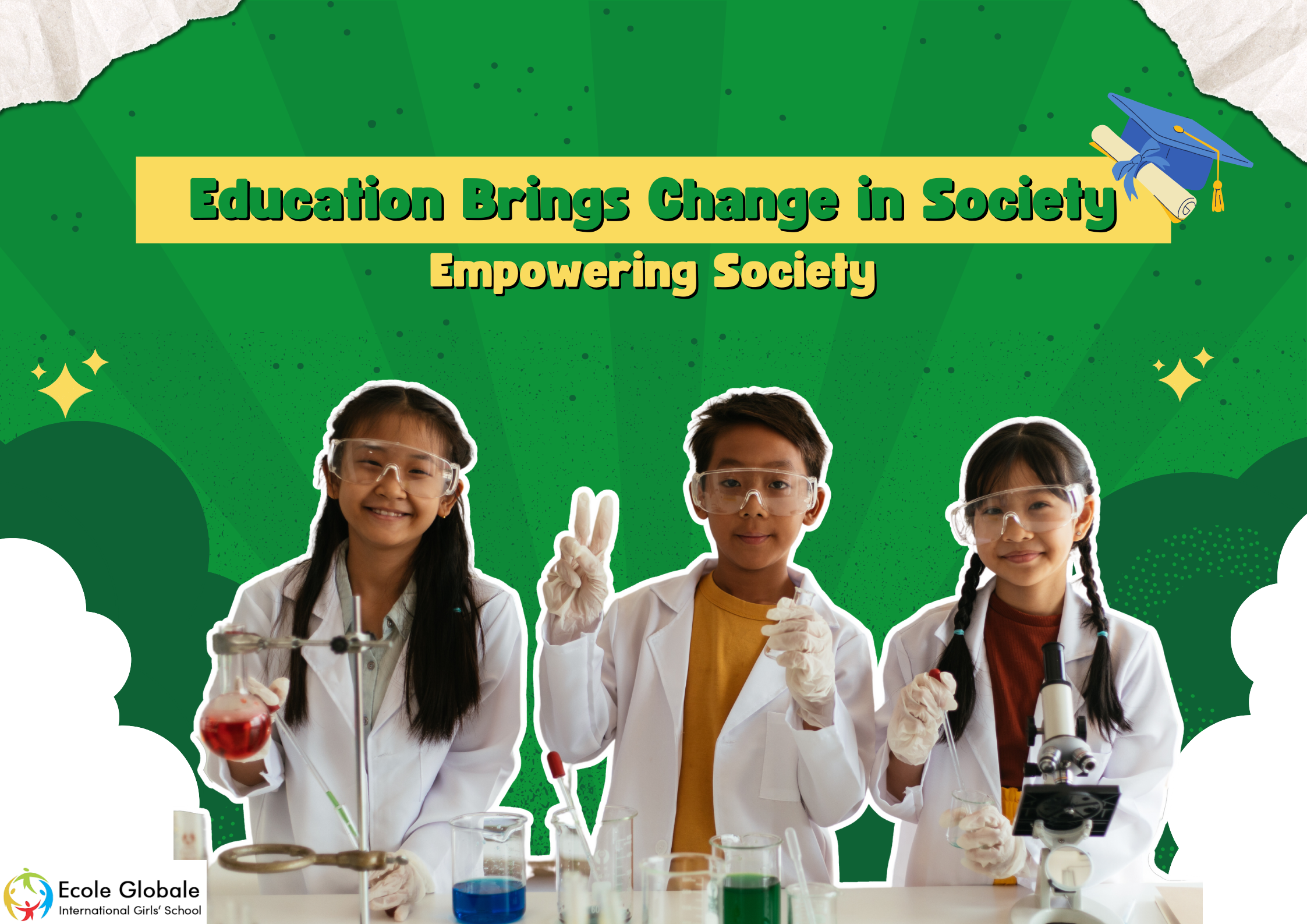Education is often praised as the most powerful tool for transforming societies, and for good reason. Its deep impact on individuals and communities has been witnessed throughout history.
In this article, we will explore how education brings change in society and servers as a catalyst for empowering individuals, fostering critical thinking, promoting social equality, driving economic development, and even leading to social change.
Power of Education Brings Change in Society

Education holds the key to personal empowerment and societal progress. It equips individuals with knowledge, skills, and opportunities to improve their lives. Across the globe, countless stories attest to the transformative power of education brings change in society. From rags to riches, from despair to hope, education has the ability to break the cycle of poverty and open doors to a brighter future.
Take, for example, the journey of Malala Yousafzai, advocate for girls education who survived a brutal attack. Despite facing immense adversity, Malala’s dedication to education has made her a global symbol of resilience and change. Her story demonstrates how education can empower individuals to defy oppressive forces and inspire positive change and shows that education brings change in society.
Education Fosters Critical Thinking
![]()
One of the fundamental pillars of education is its ability to cultivate critical thinking and problem-solving skills. In classrooms and lecture halls, students are encouraged to question, analyze, and evaluate information. This process of critical thinking not only enhances intellectual growth but also fuels innovation and societal progress.
Consider the scientific and technological advancements that have shaped our modern world. From the invention of the wheel to the development of vaccines and space exploration, education brings change in society and has been the driving force behind these remarkable achievements.
It is through education that individuals acquire the knowledge and skills to tackle complex challenges and create solutions that benefit society as a whole.
Education Promotes Social Equality

Access to quality education plays a pivotal role in reducing societal inequalities. It is a powerful equalizer that empowers individuals regardless of their background, gender, or socio-economic status. In societies where education is accessible to all, opportunities for personal growth and success become more equitable.
The promotion of gender equality is a significant aspect of education’s role in societal change. Girls and women who have access to education are more likely to make informed decisions about their lives, contribute to their communities, and participate in the workforce. This, in turn, fosters greater gender equality and diversity in society. That’s how education brings change to society.
Education and Economic Development

Education and economic development are inextricably linked. Nations that prioritize education tend to experience higher economic growth and stability. Access to quality education equips individuals with the skills needed to participate in the workforce and contribute to a nation’s prosperity.
Research consistently shows a positive correlation between education and economic well-being. People with higher levels of education generally earn higher incomes, have lower unemployment rates, and contribute more to their nation’s overall productivity. Therefore, investments in education are not just expenditures but long-term investments in a nation’s economic future.
Education as a Tool for Social Change

Education brings change in society and has the power to raise awareness about social issues and drive positive change. Throughout history, educational initiatives have played a pivotal role in addressing societal challenges.
Education is really important as education brings change in society. Whether it’s campaigns to combat illiteracy, efforts to promote public health, or movements for civil rights, education has been a driving force behind transformative social change.
For instance, the civil rights movement in the United States drew strength from education. Leaders like Martin Luther King Jr. and Rosa Parks were not only advocates for social justice but also products of a strong educational system.
Their ability to mobilize and inspire communities was deeply rooted in their educational experiences, emphasizing the role of education in shaping future leaders and change-makers.
The Role of Educators

In the pursuit of positive societal change, educators play a central role. They are not just disseminators of knowledge but also mentors and guides who shape the values and perspectives of the next generation. Quality teaching and mentorship are essential components of effective education because education brings change in society.
Educators have the unique opportunity to instill a sense of social responsibility and civic engagement in their students. By fostering empathy, critical thinking, and a commitment to positive change, they contribute to the development of socially conscious individuals who can lead efforts to improve society.
Challenges in the Education System

While education holds immense potential for positive change, it is not without its challenges. Access to quality education remains unequal in many parts of the world, limiting opportunities for countless individuals. Furthermore, issues such as educational quality, infrastructure, and teacher training must be addressed to ensure that education can fulfill its transformative role as education brings change in society.
Efforts to overcome these challenges often require innovative solutions, including the use of technology in education brings change in society. Online learning and digital resources have the potential to extend educational opportunities to remote and underserved communities, bridging gaps in access and quality.
Education in the Digital Age

In today’s digital age, technology has become an integral part of education. Online platforms, digital resources, and virtual classrooms have revolutionized the way knowledge is disseminated and acquired. This transformation has both opportunities and challenges.
While digital education offers unprecedented access to information and learning opportunities, it also raises questions about equity and inclusivity. Ensuring that all individuals, regardless of their socio-economic background, have access to digital education is a crucial aspect of harnessing technology’s potential for positive societal change.
Conclusion
In conclusion, education brings change in society and stands as the most effective means of bringing about positive change in society. Its transformative power empowers individuals, fosters critical thinking, promotes social equality, drives economic development, and serves as a tool for social change.
As we navigate the challenges of the modern world, investments in education brings change in society, quality teaching, and equitable access to learning opportunities remain essential for building a brighter and more equitable future for all. Education is not just a path to individual success; it is the foundation upon which we can collectively build a better society.









